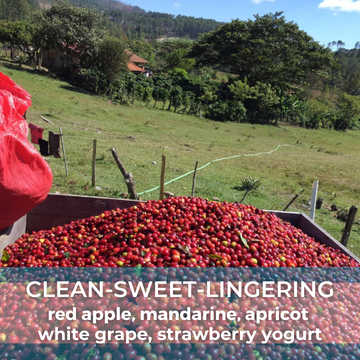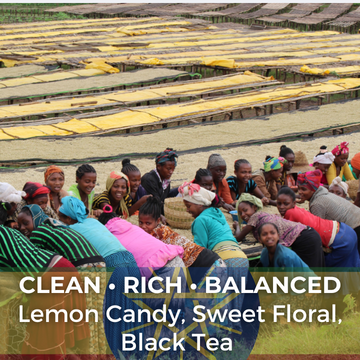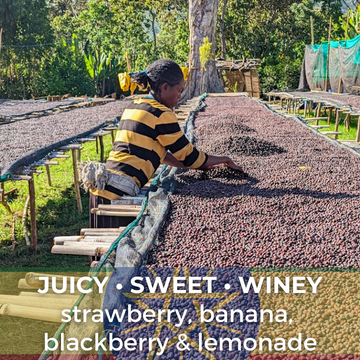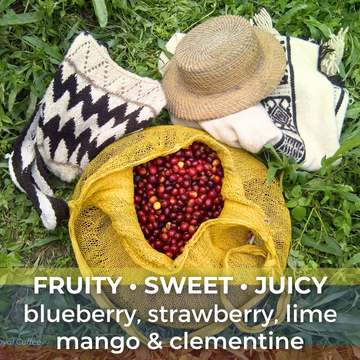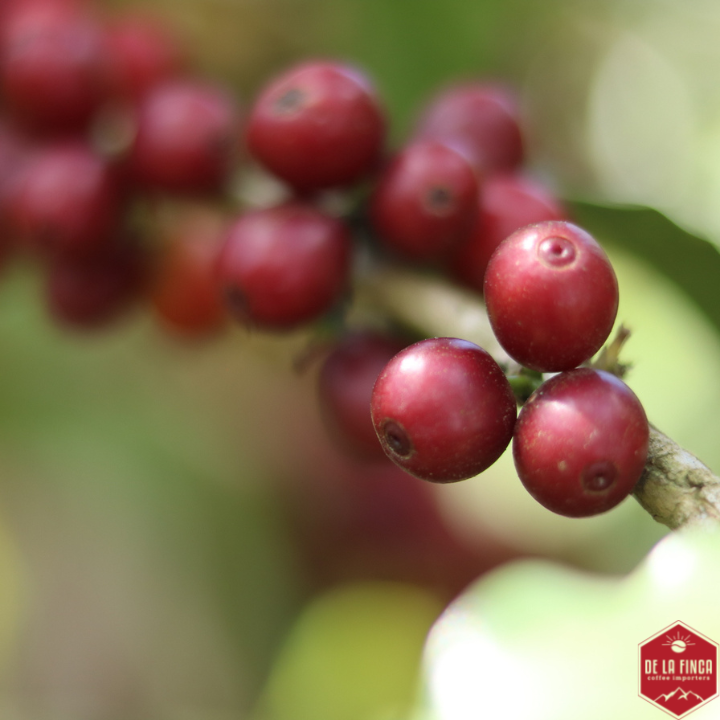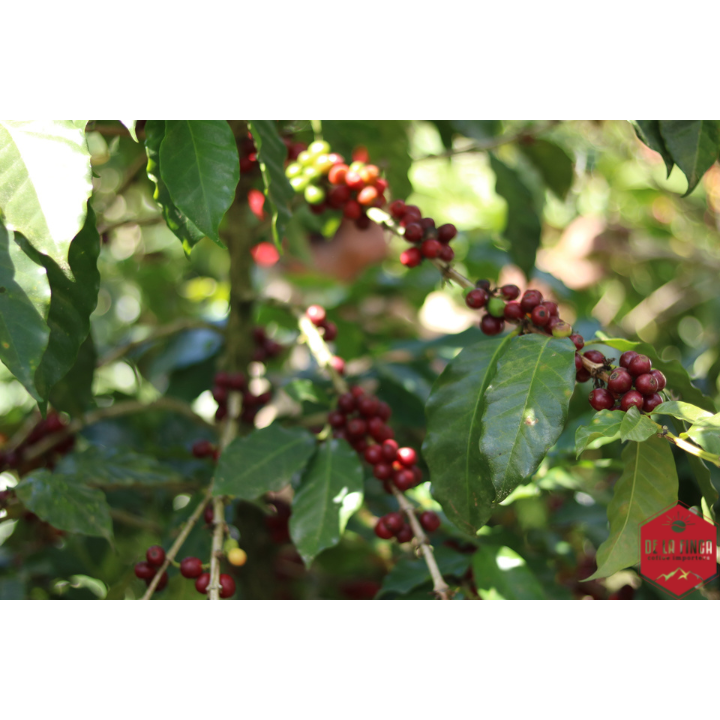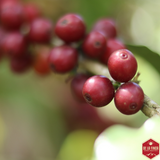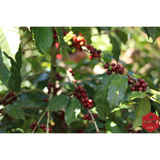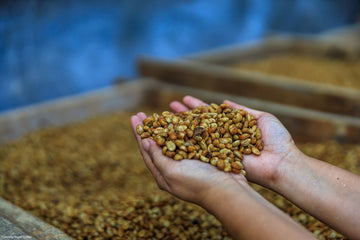Honduras Marcala Anaerobic Red Honey Organic
This Yellow Bourbon from Honduras courtesy of De La Finca Importers is direct trade, organic and bird friendly. De La Finca's anaerobic fermentation was carefully developed to give their coffees juicy sweetness without introducing any harsh, vinegary flavors. The result is a sweet, clean cup that's full-bodied with a creamy texture and notes of mango, ripe fruit & cocoa powder.
This coffee may be a little long in the tooth, but it’s still got plenty of punch, especially at this price. It’s a Yellow Bourbon from Honduras courtesy of De La Finca Importers which means it’s direct trade, organic and bird friendly. De La Finca's anaerobic fermentation was carefully developed to give their coffees juicy sweetness without introducing any harsh, vinegary flavors. The result is a sweet, clean cup that's full-bodied with a creamy texture and notes of mango, ripe fruit & cocoa powder.
Reminder! This coffee is raw, you must roast it before brewing
Harvest year: 2025, packed in GrainPro
Acidity & Brightness: Fairly bright and sweet
Balance & Finish: Moderately balanced and fairly clean finish
Body & Texture: Rich with a creamy texture
Flavors: Ripe fruit, mango & cocoa powder
Grade: SHG-EP, grown at 1450 masl
Certifications:Direct trade, Organic & Bird friendly
Processing: Anaerobic red honey dried on raised African beds.
Grower: De La Finca Coffee | DLF Marcala
Region: San Jose, Marcala, Honduras
Varietals: Yellow bourbon
Recommended Roast Range: City to Full City (Light to Medium)
We like this coffee best at City + (light-medium, at the tail end of 1st crack), but it will perform well nearly anywhere in the Light to Medium spectrum. Lighter roasts accent bright acidity, while medium roasts will lose brightness in favor of body as well as bringing out more rounded sweetness.
De La Finca Coffee - "In the spirit of learning and innovation, we bought a small 9 acre farm in the fall of 2019 on the outskirts of Marcala, La Paz, Honduras.
Our intention behind this expansion is three-fold:
1) To expand our expertise in Honduran coffees. Our family’s coffee farms are primarily located in the Comayagua region (about 3 hours away). With Marcala, La Paz being the hub of specialty coffee in Honduras, a farm in the area opens both our operations and insight in a strategic location in the coffee community of our home country.
2) To experiment with new processes and production methods. The property gives us room for research and experimentation without tampering with our own family’s production. We bought this property as an experimental specialty farm to be separate from our own family farms and experiment with different production and processing methods.
3) To innovate, implement, and teach best practices in the industry. We want to use this farm as both an experimental and an example farm — a place where we can innovate, implement and then train other producers not only in what we’re learning in terms of production but also in terms of operations. For example, many producers pay low wages to pickers and have difficulty finding workers when harvest time comes. By paying higher wages to our pickers and employing workers year round, we can lead by example and hopefully see an impactful and significant shift in our industry.
